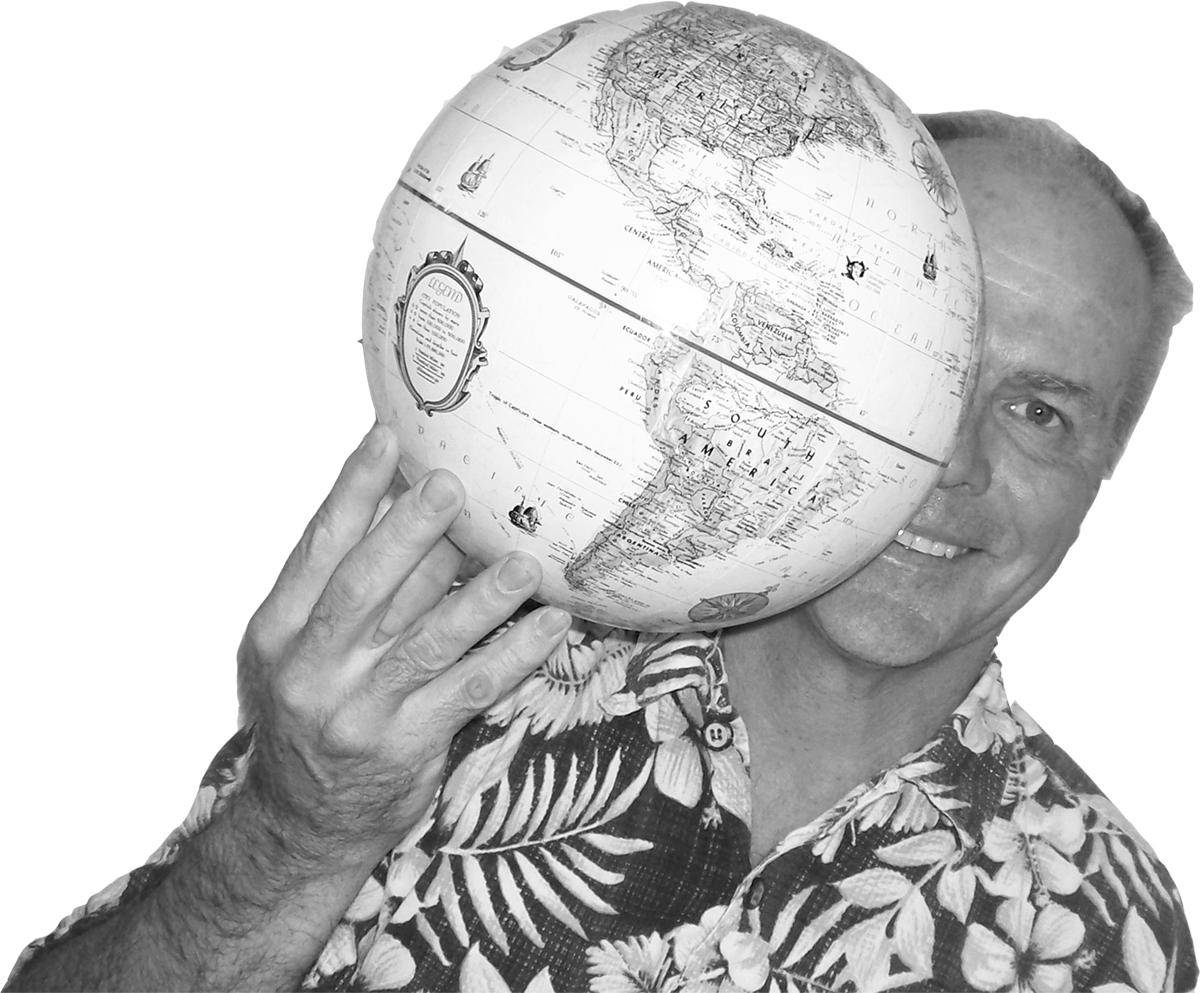When the last ding-dong of doom tolls for you, it would be nice to go out famous, wouldn’t it? I mean, who wants to be anonymous when all is said and done? Who wants to lie forever under a slab with a date on the left and a date on the right, and nothing more than a dash in between? It would be nice if people remembered your name long after you were gone, explaining in famous detail what your dash stood for to anybody too young to know firsthand.

But to go out anonymous? To have your lifelong dash stand for nothing more than getting in line at the stoplight or the supermarket, then coming home to clean the toilet and mow the grass, and hope that the kids and grandkids come over for a barbecue on Saturday?
No, it would be better to go out famous, right? Not Kardashian “famous-for-being famous” famous. Real “do-something-to-be-famous” famous.
For instance, it would be nice to be famous for being the guy who won the Nobel Prize for doing something so important that more than three billion people around the world today owe their very lives to you, right?
But then again, fame can be tricky. For instance, it would be lousy to be famous for being the guy who did the evil work that led directly to the deaths of millions of innocent people, right?
But how would it feel to be the same famous guy who did both of those things?
If he weren’t dead, you could ask Fritz Haber, because he’s the only man in history who can make both claims.
It was more than a hundred years ago, in 1909, that Haber found a way to turn the atmosphere’s nitrogen into plant fertilizer, a discovery that has been called “the most important invention of the 20th century.”
All plants require nitrogen to grow, but although nitrogen comprises 80 percent of Earth’s atmosphere, only a tiny portion of it becomes fertilizer naturally—on the roots of alfalfa or pea plants, or during lightning strikes. As a result, nitrogen is naturally “fixed” into fertilizer so slowly that there is a limit to how much food can be produced through natural processes.
Without somehow helping nature along, Earth’s maximum population would top out at under five billion people, all of them hungry.
But Fritz Haber found a way to synthetically help nature “fix” nitrogen, to make it available for plants to absorb. Because of his work, nitrogen fertilizer is cheap and abundant—and so is food. And so there are now about 7.75 billion humans on the planet, and although many are hungry, a lot of them are pretty well-fed.
Three billion of them wouldn’t be here at all if it weren’t for Haber, and the rest of them would be living on the edge of starvation. Fittingly, he was awarded the Nobel Prize in 1918 for being one of the good guys.
Pretty nice claim to fame, eh?
But nitrogen has a lot of other uses besides fertilizer, and Haber knew about them, too. After whipping the problem of increasing crops, he put his shoulder behind the German war effort, developing Nazi bombs made from synthetic nitrogen that raised the bar for warfare.
Later, when those bombs had helped Hitler conquer nations, and the ranks of prisoners swelled beyond the means to keep them all alive and under control, Haber developed Zyklon B, the gas used in concentration camps throughout the Nazi regime to efficiently murder millions during World War II.
Pretty lousy claim to fame, eh?
To make matters worse, Haber was himself a Jew doing the dirty work for a reich dedicated to the eradication of Jews worldwide, and his wife was so shamed by his work that she killed herself with his army pistol. Later, Haber himself died a broken man in a hotel room, fleeing from the Nazi puppet-masters he had served so faithfully.
It is ever thus for those who blindly do the work of despots.
If you’ve never heard of Fritz Haber, don’t feel alone. Most people haven’t, because history is told by those who want us to remember it for one reason or another, and it is easier to support those reasons when the tales of history fall into neat categories. One column for good, one for bad. Anybody standing in the middle is bound for anonymity. And anybody standing with one foot in each column—well, we don’t know what to do with them at all, now do we?
And so it is with Fritz Haber. It would be hard to imagine who would take up Fritz Haber’s banner and wave it gloriously (or even ingloriously) for the world to remember.
Father of the greatest invention of the 20th century and benefactor of all mankind? A man to be admired and revered? Well, yeah, but on the other hand….
Evil scientist and death merchant in the world’s most shameful drama? A man to be hated and reviled? Well, yeah, but on the other hand.
In today’s world, we tear down statues of men whose plus-and-minus life dash is far less complex than that of Fritz Haber.
And so, it turns out, there are more paths than one to anonymity. Most of us manage the feat by getting in line at the stoplight or the supermarket, then coming home to clean the toilet and mow the grass, and hope that the kids and grandkids come over for a barbecue on Saturday.
Others, like Fritz Haber, dabble in glorious good and profound evil until they cancel each other out and end up with a life that amounts to a high-scoring forgettable draw.
And when you think of it that way, a clean toilet and a Saturday barbecue with the kids doesn’t sound so bad, does it?
TR Kerth is the author of the book “Revenge of the Sardines.” Contact him at trkerth@yahoo.com.




